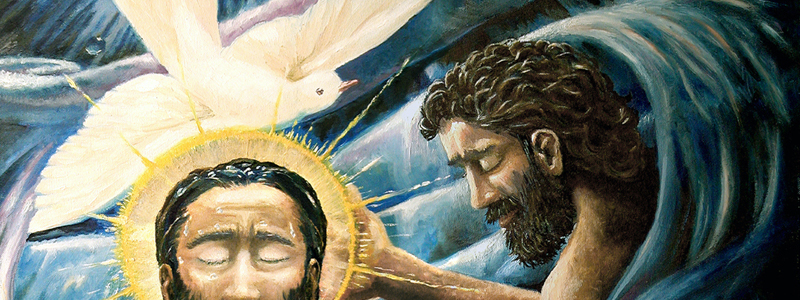Photo Credit by Flickr/Waiting For The Word
FRIDAY MORNING MANNA
September 5, 2014
Nathaniel Fajardo
The Baptism of the Holy Spirit: Have we received it?
Apollos and the Filling of the Spirit. – First, a quick background of Apollos:
Greek Apollos, a contraction of Appolonious [or Apollodurus]. A Jewish convert to the message of John the Baptist, described as being diligent, fervent, and “an eloquent man, and mighty in the scriptures” (Acts 18: 24, 25), born in the Egyptian city of Alexandria. After his conversion he became an itinerant evangelist (chs 18: 24, 27: 19:1).
While preaching at Ephesus he met Aquila and Priscilla, Christian Jews who instructed him in the tenets of Christianity (ch 18: 26, 28). After this Apollos went to the Roman province of Achaia, taking with him a letter of recommendation from the church at Ephesus (v 27). While in Achaia he preached with success in the city of Corinth (chs 18: 28; 19:1), and because of this abilities became popular with a certain faction that began to exalt him, as opposed to other groups which exalted Paul, Peter, or Christ (1 Cor. 1: 12).
This condition received no encouragement from Apollos, and it was doubtless because of it that he refused to return to Corinth when Paul asked him to do so (ch 16:12). In his rebuke to the church for their factious spirit Paul stated that he and Apollos were ‘one,’ and ‘laborers together’ (ch 5: 6, 9).”- SDA Bible Dictionary, Commentary References Series, Vol. 8, p. 59, art. “Apollos,” Review & Herald Publishing Asso., 1960.
We now quote the Bible passages that record Paul’s ministry at Corinth (verses 1-22) in contrast to Apollos’ ministry. The former was in the power of the Holy Spirit, the latter without it until he was told. See Acts 18: 24-28; 19: 1-8. (Italics supplied):
Now a certain Jew named Apollos, born at Alexandria, an eloquent man and mighty in the Scriptures, came to Ephesus. This man had been instructed in the way of the Lord, and being fervent in spirit, he spoke and taught accurately the things of the Lord, though he knew only the baptism of John.
So he began to speak boldly in the synagogue. When Aquila and Priscilla heard him, they took him aside and explained to him the way of God more accurately. And when he desired to cross to Achaia, the brethren wrote, exhorting the disciples to receive him; and when he arrived, he greatly helped those who had believed through grace; forhe vigorously refuted the Jews publicly, showing from the Scriptures that Jesus is the Christ. Verses 24-28.
And it happened, while Apollos was at Corinth, that Paul, having passed through the upper regions, came to Ephesus. And finding some disciples, he said to them, “Did you receive the Holy Spirit when you believed?” “We have not so much as heard whether there is a Holy Spirit”’ And he said to them, “Into what then were you baptized?” So they said, “into John’s baptism.”
Then Paul said, “John indeed baptized with a baptism of repentance, saying to the people that they should believe on Him who would come after him, that is, on Christ Jesus.” When they heard this, they were baptized in the name of the Lord Jesus. And when Paul had laid hands on them, the Holy Spirit came upon them, and they spoke with tongues and prophesied.Now the men were about twelve in all. Acts 19: 1-7.
From observes that Apollos, though learned and eloquent, had a feeble ministry:
“Alexandria was a center of Greek learning and culture, in which Philo was the outstanding figure. Incidentally, the influence of the Greek mode of thinking had invaded the Hebrew method of studying their own Scriptures. This background is helpful as we turn our thoughts to Apollos.
“He was a learned and eloquent man, and was mighty in the Scriptures. He knew how to present them convincingly, and was careful in his teaching. He was gifted in the art of oratory and bold in utterance. He was earnest and fervent in spirit, possibly having imbibed this intensity from John the Baptist. [Acts 18, 25, A.R.V. quoted]. But his presentations were theoretical.
And he could take the people only as far as he had gone—not a yard beyond, nor a foot above. There were two humble laymen—Aquila and Priscilla—who knew Jesus better than he, for they knew Him experimentally. These instructed him more fully.
“One might think that Apollos would have turned the city of Ephesus upside down through his eloquence, but very little is recorded concerning his ministry, despite the burning eloquence of this sincere soul. There was but little result from his strenuous labor, and he passed on to Corinth. Paul, later coming to Ephesus, sought out the church, and was rewarded with the discovery of only twelve weak disciples. Doubtless they were meeting in some obscure room, exercising but little influence in that vast, idolatrous city, from out of which the grace of God had drawn them.” – LeRoy E. Froom, The Coming of the Comforter, Revised Edition, pp. 139-140, Review & Herald Publishing.
Paul’s Penetrating Question. “Paul saw instantly that there was something lacking in their life and witness. He was convinced that there was a reason why they exercised no greater power. He was a penetrating observer, and he was looking for the cause that produced this effect. Their unsatisfactory condition was pitiably apparent. The poverty of their living Christian experience, the barrenness of spontaneous activity, and the powerlessness of their testimony could not be hidden.
“The twelve men represented the product of their eloquent leader Apollos. If a preacher begins with mere eloquence, he usually ends with mere instruction. Too often the divine dynamic will be lacking; for a man can lift others only to the level on which he himself lives.” – Ibid, p. 141.
Froom quotes E.G. White:
“The preaching of the word will be of no avail without the continual presence and aid of the Holy Spirit. This is the only effectual teacher of divine truth. Only when the truth is accompanied to the heart by the Spirit, will it quicken the conscience or transform the life. One might be able to present the letter of the word of God, he might be familiar with all its commands and promises; but unless the Holy Spirit sets home the truth, no souls will fall on the Rock and be broken [see Isa. 28: 9-13].
“No amount of education, no advantages, however great, can make one a channel of light without the co-operation of the Spirit of God. The sowing of the gospel seed will not be a success unless the seed is quickened into life by the dew of heaven. Before one book of the New Testament was written, before one gospel sermon had been preached after Christ’s ascension, the Holy Spirit came upon the praying apostles. Then the testimony of their enemieswas, ‘Ye have filled Jerusalem with your doctrine.’”- The Desire of Ages, p. 671.
LeRoy Froom continues: “Without preliminaries Paul went directly to the crucial point. ‘Did you receive the Holy Spirit when ye believed?’ he asked. Acts 19:2, A.R.V. And their reply was, ‘Nay . . . . The disciples of John the Baptist knew of the Holy Spirit to come, but had not yet received Him. Yet this experience at Ephesus was twenty years after Pentecost.
“Paul was not asking concerning the special gifts of the Spirit [see 1 Cor. 12], but of the Gift supreme—the Holy Spirit Himself. And their reply indicates that they so understood him. He wanted to learn whether they had received the filling of the Holy Spirit—the permanent, central feature of Pentecost. For there is an experience beyond and above the initial step by which the Holy Spirit first reveals sin, and begets a new life in the soul, and that is to be filled with the Spirit. For the lack of this, one’s testimony is feeble and he spiritual life but partial.
“It is one thing to know something of the Holy Spirit’s operations; but a vastly different thing to receive Him as a personal, indwelling Guest. And these Ephesian disciples were still unacquainted experimentally with this great fact and provision. So Paul at once made them conversant with the gospel of the risen and ascended Lord, who was glorified and had received the promise of the Spirit from the Father, which He in turn had sent down into the world for every believer to receive. And then they received the Holy Spirit in harmony with Heaven’s provision.
“No Compensation for Spirit’s Lack. – Alas, many today have gone as far as the baptism of repentance, but no farther. They are honest, sincere, and obedient to the extent of their knowledge. But they are ignorant of the fuller, brighter, larger life. Whatever knowledge they have of the Holy Spirit is vague, indefinite, inadequate. His personality, power, and presence are not understood. They are largely ignorant of His program and provisions, and are [thus]sadly barren of His fruits. –Ibid, pp. 142-3.
“It is easy to look back to the cross as the basis of faith, or forward to the throne which we anticipate with hope. But we live in the tremendous present with its terrific problems. And thousands have not yet grasped with any personal appreciation and appropriation the supremefact and reality of the Holy Spirit. We are in weakness because the greatest of God’s provisions for this dispensation is covered with unreality. We understand other truths, but have not laid hold of this one; that the one supreme fact and force and need in the world today is the Holy Spirit, not merely in the world or church in general, but in the individual life.” – Ibid, p. 144.
Have you been, Apollos-like, baptized by the watery baptism of repentance and your name enrolled in the church’s books, and henceforth have been honest, sincere, and obedient but have not yet experienced, so near earth’s final test, that fuller, brighter, larger life of being baptized by the Holy Spirit? If not, why? If not now, when?


